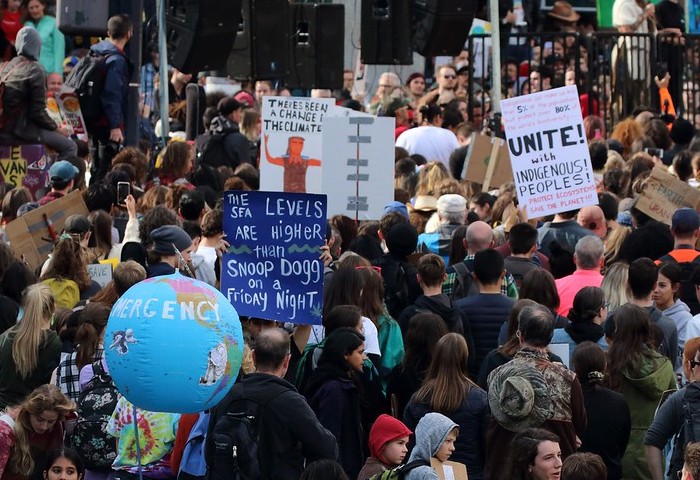Accelerating biodiversity loss, climate change and over-consumption are swiftly pushing human societies toward a “ghastly future” of growing hunger, political division and societal breakdown, say leading scientists.
Despite years of warnings, the threats are underestimated and not broadly understood, and efforts to head them off are hamstrung because many governments are captured by wealthy elites protecting their own short-term interests, they added.
“The scale of the threats to the biosphere and its life forms - including humanity - is so great that it is difficult to grasp even for well-informed experts,” the 17 scientists wrote in an article in the journal Frontiers in Conservation Science.
The dangers include agricultural collapses that could create widespread hunger, large-scale forced migration as people flee uninhabitable conditions and a rise in right-wing populist governments that make addressing the threats harder, they said.
“COVID and the rise of nationalistic leaders show us our perceived security is much more tenuous than we thought,” said co-author Daniel Blumstein, a biologist at the University of California, Los Angeles.
Despite efforts to spur action to protect the climate and biodiversity, “we see all of these indicators going in the wrong direction”, he told the Thomson Reuters Foundation.
The journal article cites more than 150 scientific papers detailing the perils, but notes these have gained little traction, particularly in a global economy built around unsustainable pillars of perpetual growth and short-term gain.
With damage to the climate and nature not yet factored into economic decision-making, “we’re living in an ecological Ponzi scheme” that steals from future generations, Blumstein said.
That, combined with population growth and skyrocketing consumption of resources, as more people around the world enter the middle class, means environmental threats to humanity are accelerating far faster than even scientists expected.
“For the first time ever in the history of the world, the wants of very few can have massive consequences for the viability of the Earth and humanity,” Blumstein said.
“The problems we’re facing now are civilization killers and humanity killers,” he warned.
Contributors to the report included ecologists, biologists and sustainability experts from the United States, Australia and Mexico, including Paul Ehrlich, a retired Stanford University biologist who wrote the controversial 1960s book “The Population Bomb”.
“The biodiversity threat is underestimated and people don’t understand how tied they are to it,” particularly in terms of the consequences for global food production, Ehrlich said.
With successful agriculture highly dependent on a stable climate, “people are not paying serious attention to that at the level they ought to”, he told the Thomson Reuters Foundation.
Too costly?
The scientists said the widespread view that fundamental economic shifts, away from fossil fuels and toward curbing excessive consumption, are too expensive does not adequately take into account the costs of not making those shifts.
Over-consumption and destruction of nature and the climate will inevitably end, they said - the question is whether that happens “by design or by disaster”.
With authoritarianism, extreme weather, wildfires, hunger and environmental destruction already surging around the world, the fear is the second route is becoming more likely, they said.
“We’re seeing the beginning of the crumbling of our civilization - and it’s really scary,” Ehrlich noted.
Taking effective action to head off the threats is growing harder as they become more acute and the measures needed to address them more extreme, the scientists said.
“The severity of the commitments required for any country to achieve meaningful reductions in consumption and emissions will inevitably lead to public backlash and further ideological entrenchments,” they warned.
Political divisions will in turn limit “the capacity of making prudent, long-term decisions” and countries’ ability to come together to solve urgent global problems, they added.
Transforming global economic and political systems will require mass grassroots action to pressure governments and businesses, Blumstein said.
“The political situation we’re in now is largely driven by inequality, where the rich get what they want,” he said.
“We are not investing in a future that will lead to the greatest good for the greatest number. We need to inspire massive political change - bottom-up change,” he said.
Reporting by Laurie Goering @lauriegoering; editing by Megan Rowling.
Further resources:
Underestimating the Challenges of Avoiding a Ghastly Future - Frontiers in Conservation Science, 13 January 2021
Original source: Thomson reuters Foundation
Image credit: Some rights reserved by vancouverizer, flickr creative commons

